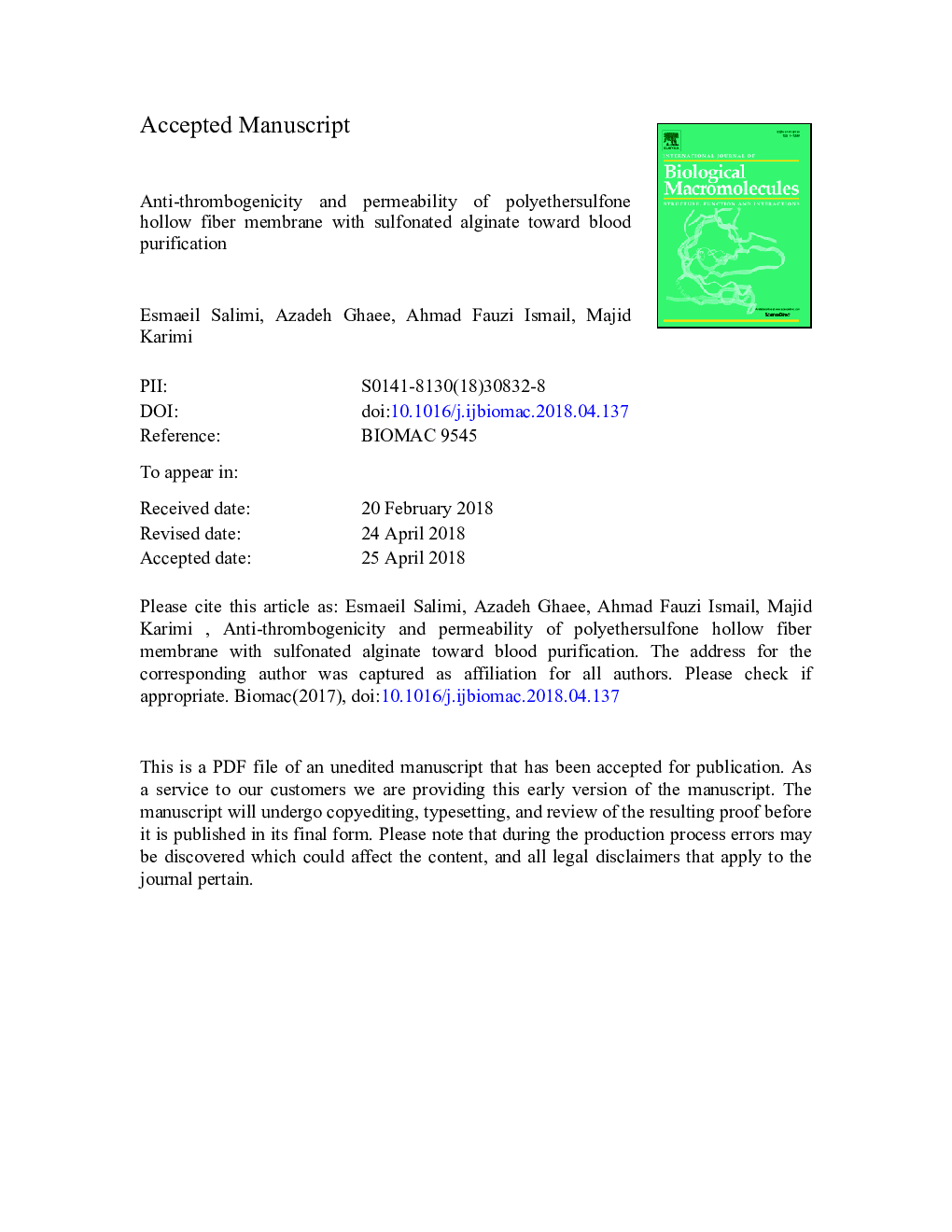| Article ID | Journal | Published Year | Pages | File Type |
|---|---|---|---|---|
| 8327107 | International Journal of Biological Macromolecules | 2018 | 49 Pages |
Abstract
The main aim of this study was to evaluate the suitability of sulfonated alginate as a modifying agent to enhance the hemocompatibility of self-fabricated polyethersulfone (PES) hollow fiber membrane for blood detoxification. Sodium alginate was sulfonated with a degree of 0.6 and immobilized on the membrane via surface amination and using glutaraldehyde as cross-linking agent. Coating layer not only improved the membrane surface hydrophilicity, but also induced â39.2â¯mV negative charges on the surface. Water permeability of the modified membrane was enhanced from 67 to 95â¯L/m2·h·bar and flux recovery ratio increased more than 2-fold. Furthermore, the modified membrane presented higher platelet adhesion resistance (reduced by more than 90%) and prolonged coagulation time (35â¯s for APTT and 14â¯s for PT) in comparison with the pristine PES hollow fiber membrane, which verified the improved anti-thrombogenicity of the modified membrane. On the other hand, obtained membrane after 3â¯h coating could remove up-to 60% of the uremic toxins. According to the obtained data, sulfonated alginate can be a promising modifying agent for the future blood-contacting membrane and specially blood purification issues.
Related Topics
Life Sciences
Biochemistry, Genetics and Molecular Biology
Biochemistry
Authors
Esmaeil Salimi, Azadeh Ghaee, Ahmad Fauzi Ismail, Majid Karimi,
